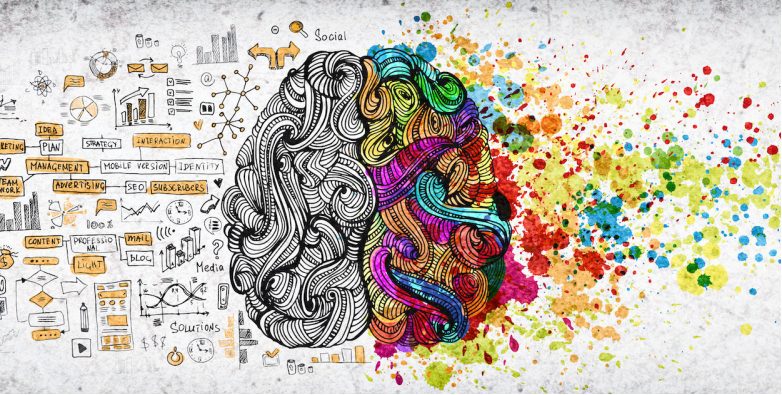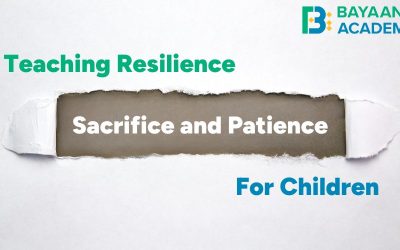Key Elements of Emotional Intelligence
In a world where IQ alone is no longer the sole measure of success, a hidden superpower called Emotional Intelligence (EI) has emerged as the key to mastering relationships, work, and personal growth. EI unveils a whole new dimension of our capabilities—the power to understand and regulate our own emotions, while effectively showing empathy with others. Emotional intelligence is a vital component of personal and social well-being in Islam. It encourages believers to show empathy, compassion, and self-control in their interactions with others. The Quran and Hadith provide guidance on being emotionally aware and considerate, fostering positive relationships, and handling emotional situations with wisdom and patience. In this blog, we will delve into how Islam reinforces our emotional intelligence using the five key elements.
Self-Awareness
Self-awareness involves recognizing and understanding your own emotions, strengths, weaknesses, values, and motivations. People with high self-awareness are better equipped to handle stress and adversity. They can pinpoint the source of their feelings and make conscious decisions rather than reacting impulsively.
The Holy Quran emphasizes the uniqueness of human creation, declaring,
“Surely, We have created man in the best make” (Surah at-Tin, Ch.95: V. 5)
Allah, our Creator, has endowed us with intelligence that sets us apart from all other beings.While animals may possess a level of consciousness, humans take it a step further. According to a Scientific American article titled “Does Self-Awareness Require a Complex Brain?”, humans don’t just possess consciousness; they also exhibit self-awareness (Higgins & Jabr, 2012). This means that we can not only “think” but also “think about our thinking.”
Self-improvement and introspection hold pivotal roles in our faith as Muslims.
Islam recognized over 1400 years ago that the greatest struggle, or jihad, is the one within ourselves— the journey of self-reformation.
Self-Regulation
Once you are aware of your emotions, the next step is self-regulation. This element involves managing your emotions effectively, especially in challenging situations. It’s about being in control of your reactions, resisting impulsive behavior, and finding healthier ways to express your feelings. In Islam, self-regulation is a fundamental concept that guides believers on a path to eternal success. Success is defined as pleasing God and being rewarded with a blissful life in the Hereafter. This self-regulation is crucial for achieving the ultimate reward in the afterlife, teaching individuals to prioritize long-term spiritual growth and righteousness over fleeting worldly desires, aligning their actions with the pursuit of eternal success and the pleasure of
Allah. The key to self-control (jihadul nafs) is given to us by Allah (SWT): :
“Follow not the lusts (of your heart) for they will mislead you from the Path of Allah…”
Surah Sad, 38:26
Motivation
People with high emotional intelligence are often self-motivated and resilient. They have a clear sense of purpose and are capable of setting and achieving goals, even in the face of obstacles. For Muslims, our motivation stems from Tawakkul (trust in Allah SWT).
“Do not lose heart or despair- if you are true believers you have the upper hand-”
[Quran 3:139].
In the Quran, Allah’s merciful promise is a source of great motivation for Muslims. Patience in the face of life’s challenges is not just about enduring; it’s about placing our trust in His divine decree. No matter how harsh the reality may seem, remember that by trusting in Allah’s plan, you’ve already achieved a significant victory in life. So, if you find yourself feeling lost, don’t grieve, for your trust in Allah is the key to your enduring motivation and ultimate success.
Empathy
Empathy is the ability to understand and share the feelings of others. It involves active listening and recognizing the emotions of those around you.Muslims are encouraged to show empathy by extending acts of charity and assistance to those in need, reflecting the importance of caring
for the less fortunate.
The Quran and Hadiths also emphasize the golden rule, which underscores the concept of treating others as you would like to be treated, and this principle is deeply rooted in the teachings of the Prophet Muhammad SAW. Furthermore, the Quran promotes forgiveness and patience in the face of wrongdoings, advocating for a compassionate response even when faced with adversity.
Empathy can be seen in a statement by the Prophet Mohammad (PBUH) which states that:
“None of you truly believes until he wishes for his brother, what he wishes for himself.”
(Hadith 13, 40 Hadith Al-Nawawi)
Social Skills
People with strong social skills can influence and collaborate with others positively.Effective communication, conflict resolution, and building strong relationships, that’s what it’s all about!
Islamic teachings stress the need for respectful and dignified communication. Even when conveying challenging messages, Islam advocates treating others with respect. For instance, the Prophet Muhammad SAW highlighted the significance of being beneficial to people.
Prophet Muhammad SAW said,
“The most beloved of people to Allah are those who are the most beneficial to people. The most beloved of deeds to Allah is to make a Muslim happy or remove one of his troubles or forgive his debt or feed his hunger. That I walk with a brother regarding a need is more beloved to me than that I seclude myself in this mosque in Medina for a month”
(Al-Tirmidhi).
This highlights the importance of communicating in a way that benefits others and avoids causing harm.Additionally, communication in Islam extends to being mindful of nonverbal cues. Muslims are expected to be conscious of their body language, facial expressions, and tone of voice when interacting with others.
The Prophet Muhammad SAW said,
“A good word is a charitable act” (Sahih Muslim),
underlining the importance of both verbal and nonverbal aspects of communication.
References
Alghamdi, A. A. (2006). Role of Islamic educational values in developing emotional intelligence
skills. Graduate Student Theses, Dissertations, & Professional Papers.
Higgins, N., & Jabr, F. (2012, August 22). Does Self-Awareness Require a Complex Brain? –
Scientific American Blog Network. Scientific American Blogs. Retrieved October 21,
2023, from
https://blogs.scientificamerican.com/brainwaves/does-self-awareness-require-a-complex
-brain/





0 Comments